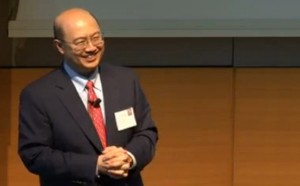Other Affiliations
and Conflict Disclosure
Co-Founder and PrincipalQLS AdvisorsDirectorAbCellera, Annual Reviews, Atomwise, BridgeBio Pharma, Vesalius TherapeauticsAdvisor toApricity Health, Aracari Bio, BrightEdge Impact Fund, Enable Medicine, Inc, FINRA, Health at Scale, Lazard, MIT Proto Ventures, Quantile Health, Roivant Social Ventures, SalioGen Therapeutics, Swiss Finance Institute, Thalēs, Uncommon Cures, xCuresPersonal investments inApricity Health, Aracari Bio, BillionToOne, BridgeBio Pharma, Enable Medicine, Inc, Fidelity Select Biotech Fund, Garuda Tx, Instil Bio, Ladder Tx, LS Polaris Innovation Fund, Medallion, MPM Capital Fund, Nautilus Biotech, Peer Collective, Polaris Innovation Fund II, Quantile Health, Royalty Pharma, SURGE Therapeutics, Uncommon Cures, Waypoint Bio
During the most recent six-year period (beginning 2017), Lo as received speaking/consulting fees, honoraria, or other forms of compensation from: AbCellera, AlphaSimplex Group, Annual Reviews, Apricity Health, Aracari Bio, Atomwise, Bernstein Fabozzi Jacobs Levy Award, BridgeBio, Cambridge Associates, Chicago Mercantile Exchange, Enable Medicine, Journal of Investment Management, Lazard, MIT, New Frontier Advisors/Markowitz Award, Oppenheimer, Princeton University Press, Q Group, QLS Advisors, Quantile Health, Research Affiliates, Roivant Sciences, SalioGen, Swiss Finance Institute, Think Tx, Vesalius, and WW Norton.[Last updated: 08/21/2023]
